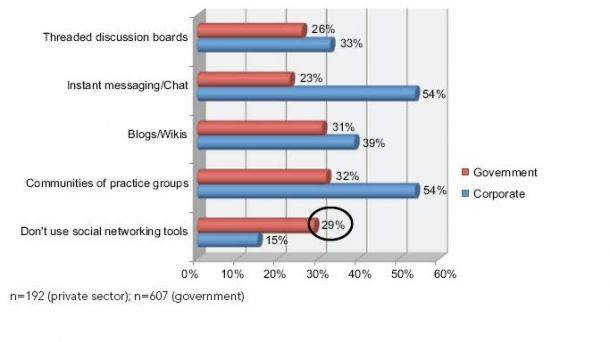Although most of your friends may not be jumping at the opportunity to share their online connections with the likes of the U.S. Census Bureau or the local chamber of commerce, local, state and federal agencies alike have joined the ranks of parents, grandparents and others new to the social networking scene. That’s right, the U.S. government is joining Facebook, Twitter, Myspace and any number of other social networking sites in droves and they want to be your friend.

And here we thought grandpa joining Facebook was really the death of its coolness.
A recent report by the talent management companies Human Capital Institute and Saba brings us the numbers, estimating that 66% of government workplaces now use social networking tools, with 65% using more than one tool. The report compares the government’s use of social networking tools with that of the private sector, noting that the government still trails with 29% not using any type of social networking compared to 15% of the private sector. But what does the breakdown look like?

The one stat we found most interesting in the above graphic was that only 23% use some sort of chat or communication tool, something we here at ReadWriteWeb couldn’t function without. A majority of social networking use, the report points out, consists of existing sites, such as Facebook, LinkedIn and Twitter.
The report also found a significant difference in social network adoption between federal and local governments, with federal agencies much more likely to use the tools, noting that this is likely a result in differences in funding from state to state.
Currently, security concerns appear to be the number one reason for government workplaces hold off on using social networking, although we have another concern – how will they be held accountable under public record laws, which are meant to keep government open and transparent to the public? We have to hope that instant messages and Facebook chats between government employees will be recorded the same as government emails so that when something goes wrong, as it inevitably does, we have a trail to look back on.
















